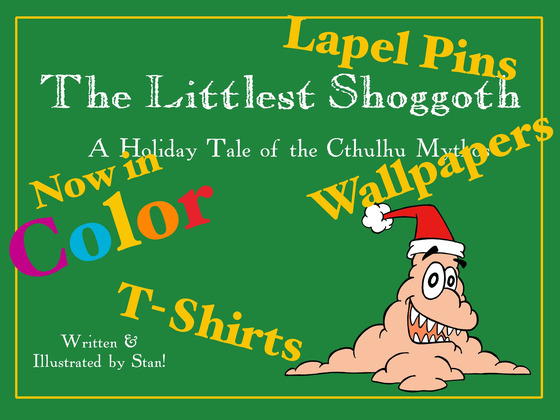You may have heard of Stan! (exclamation point included). He's worked for TSR and WotC, helped found The Game Mechanics and Super Genius Games, is a novelist, and two-times ENnie award winner (and some other awards, apparently). Most importantly, he's recently left WoTC - again.
Stan! has written a series of three blog posts discussing his time at WotC; the trilogy of articles is entitled "Life After Wizards (Again)" and is a fascinating insight into what it's like to be hired by, work at, and eventually made redundant by the company which publishes Dungeons & Dragons.
He makes it clear that he has no hard feelings; that his departure was due to a creative policy that he couldn't agree to - a policy he characterizes as "we place no value on nor have any need for experienced creative people with broad experience—we are only interested in raw, fresh creatives whose every thought we can control and own." and expresses his hope that it will one day change. Basically it's a an agreement that anything an employee creates - even if not employed to do so - belongs to Hasbro. No, it's not malicious or evil; but it's something that some people can agree to and others choose not to.
Check out Stan!'s current Kickstarter project here. The Littlest Shoggoth is a heartwarming holiday tale of the Cthulhu Mythos. Fun for "anyone who has the heart of a child (whether in a jar or still beating)". A children's story that tells the tale of Squammy, the smallest of all the Mythos creatures living around the lost and sunken city of R’lyeh. Tired of being picked, Squammy decides to explore the world above the waves. To put it mildly, things do not go well. But with some help from Santa Claus, maybe things can turn out right for Squammy after all. Inspired by the tales of Dr. Seuss, Edward Gorey, and (of course) H.P. Lovecraft, the Littlest Shoggoth is equally cute and disturbing.

Stan! has written a series of three blog posts discussing his time at WotC; the trilogy of articles is entitled "Life After Wizards (Again)" and is a fascinating insight into what it's like to be hired by, work at, and eventually made redundant by the company which publishes Dungeons & Dragons.
He makes it clear that he has no hard feelings; that his departure was due to a creative policy that he couldn't agree to - a policy he characterizes as "we place no value on nor have any need for experienced creative people with broad experience—we are only interested in raw, fresh creatives whose every thought we can control and own." and expresses his hope that it will one day change. Basically it's a an agreement that anything an employee creates - even if not employed to do so - belongs to Hasbro. No, it's not malicious or evil; but it's something that some people can agree to and others choose not to.
Check out Stan!'s current Kickstarter project here. The Littlest Shoggoth is a heartwarming holiday tale of the Cthulhu Mythos. Fun for "anyone who has the heart of a child (whether in a jar or still beating)". A children's story that tells the tale of Squammy, the smallest of all the Mythos creatures living around the lost and sunken city of R’lyeh. Tired of being picked, Squammy decides to explore the world above the waves. To put it mildly, things do not go well. But with some help from Santa Claus, maybe things can turn out right for Squammy after all. Inspired by the tales of Dr. Seuss, Edward Gorey, and (of course) H.P. Lovecraft, the Littlest Shoggoth is equally cute and disturbing.

Attachments
Last edited:

